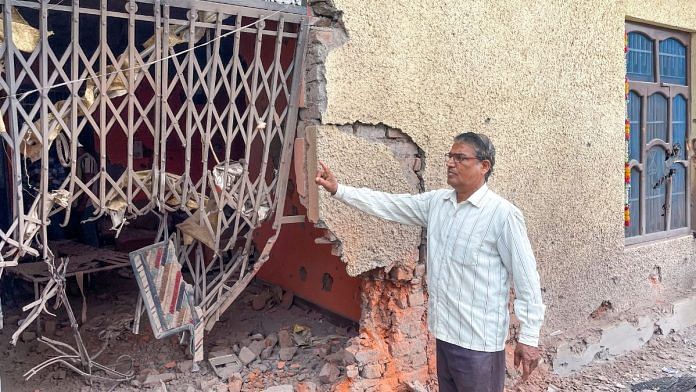China is using the same methodology to isolate Taiwan internationally and prevent formal independence. Diplomatically, it has pressured countries to derecognise Taiwan and blocked its participation in international forums like the WHO. It has waged influence operations using Chinese media and cyber efforts to manipulate opinion internally in Taiwan and globally. Militarily, regular airspace incursions, naval exercises and blockades have become commonplace to demonstrate its military dominance. On the economic front, it has used trade as leverage, by blocking Taiwanese products and rewarding countries that reject Taiwan’s status. As a result, China has kept Taiwan diplomatically isolated and succeeded in stopping Taiwan from declaring formal independence, but has nevertheless failed to break its democratic resilience, indicating that the DIME construct can constrain but not always convert.
Under the circumstances, what are India’s options to bring about the desired behavioural change? For this a comprehensive campaign at the national level needs to be formulated on these fronts.
Diplomatic. Lead international coalitions to isolate Pakistan in multilateral forums (UN, SCO, OIC). Lobby for Pakistan’s continued grey/blacklisting in FATF. Strengthen alliances with Gulf, ASEAN, and African nations to dilute Pakistan’s Islamic bloc leverage. Increased international scrutiny of Pakistan and diplomatic costs for Islamabad, may have some effect, while giving India possible leverage in backchannel talks. Insist on verifiable proof of dismantling terrorist infrastructure with strict timelines. We cannot passively wait for the next terrorist strike.
Information. Launch global campaigns exposing Pakistan’s terror infrastructure, especially the very revealing visuals of Pakistani military personnel in uniform attending the funerals of known terrorists, even going as far as giving them a ‘Guard of Honour’. Use media diplomacy and diaspora networks to shape global opinion, highlighting Pakistan’s domestic repression in Balochistan, and the Tehrik-i-Taliban Pakistan. Undermine Pakistan’s narrative internationally, with the aim to build support in Western democracies for India’s counter-terror position and military action.
Military. Maintain readiness for further calibrated strikes, always leaving the option open for military action. It is only the pause button that has been hit. Use all means to disrupt terror networks and camps. Fortify LoC defences and enhance intelligence, surveillance and reconnaissance capabilities. This would raise costs for Pakistan, deter any overt action or military misadventure a-la Kargil, and create space for diplomatic de-escalation on favourable terms.
Economic. Apart from the measures already undertaken, push for targeted global sanctions on Pakistan-linked terror actors. Maintain suspension of trade and other cross border linkages. Notwithstanding the latest bail-out package, influence IMF and the World Bank to attach verifiable counter-terror conditions to bailouts. Promote economic integration such as the India-Middle East – Europe corridor that bypasses Pakistan. The impact of this would be to put financial pressure on Pakistan’s elite and institutions, as also weaken the state’s capacity to support proxy war/groups.
As highlighted earlier these are measures that will have long gestation periods. What best can we expect?
However, a cornered and reactive Pakistan can be even more dangerous. Inbuilt in these measures should be unstated exit offers that reward good behaviour and which can be conveyed through third party channels. This could include conditional easing of pressure if Pakistan dismantles terror networks with verifiable proof. Support for trade corridors if Pakistan de-links foreign policy from proxy warfare and quiet diplomatic normalization through third parties, if bilateral talks hit a road block.
Pakistan’s use of terrorism is tied to its strategic calculus, especially regarding Kashmir and Afghanistan. While the Pahalgam tragedy has been avenged, whether such a restrained long-term policy is the best course as action remains to be seen. The guns have fallen silent – but for how long? Calibrated military actions as part of a dynamic response strategy, may be required to nudge Pakistan towards the desired exits. We need not always be reactive. Presence of terrorist groups or camps are reason enough for pro-active defensive measures.
(Edited by Theres Sudeep)








